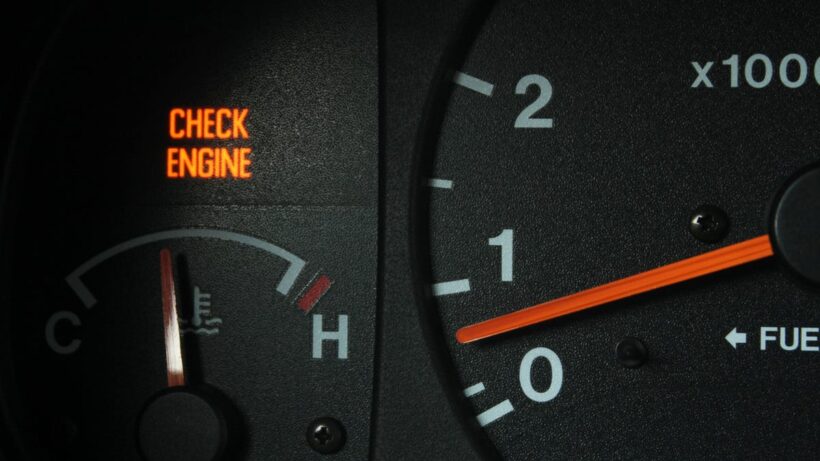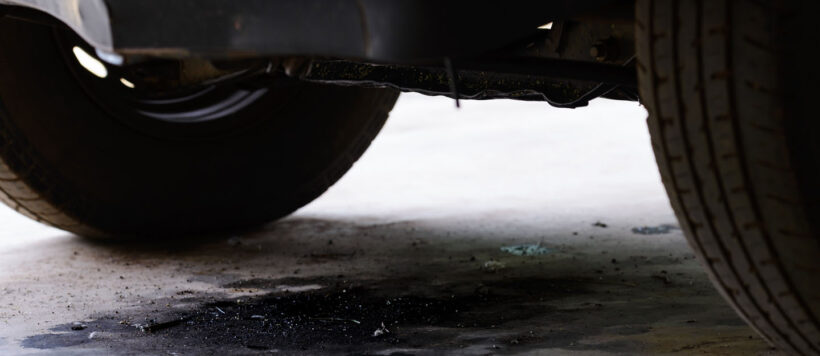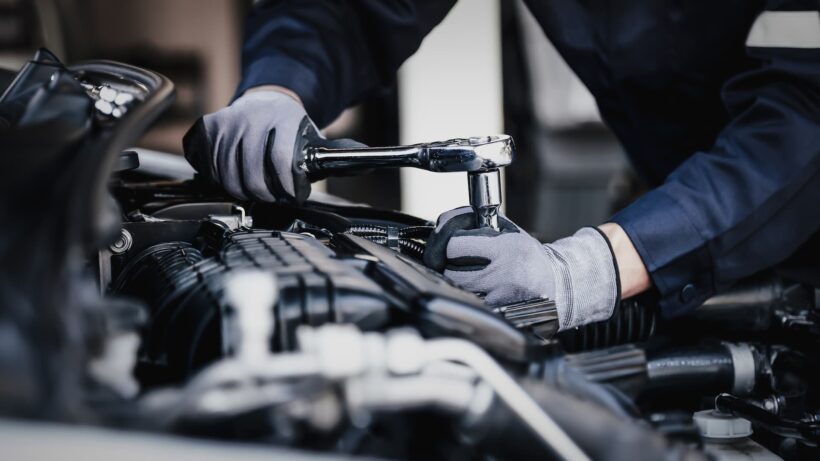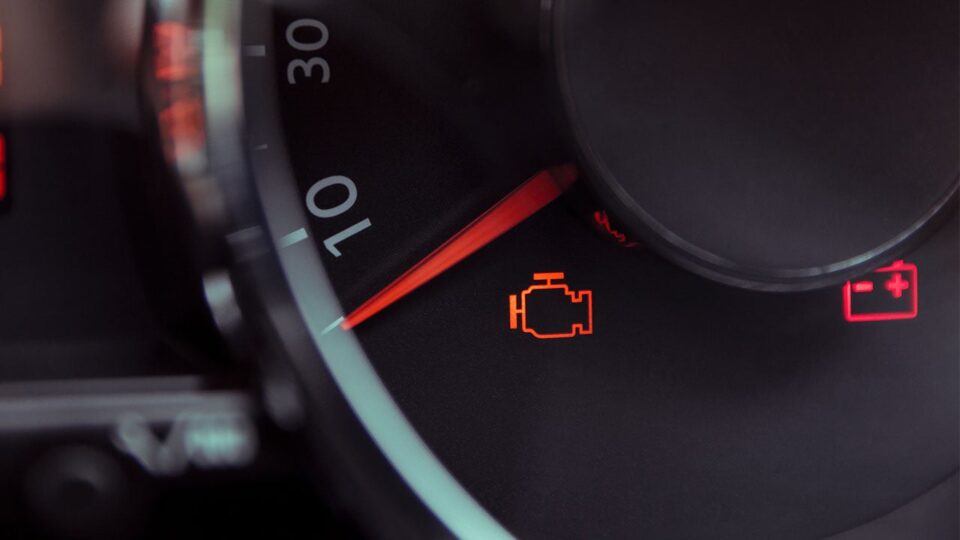Your car is more than just a mode of transportation. It’s a complex machine with numerous components that can develop issues over time. While some problems may seem minor at first, ignoring them can lead to costly repairs and safety hazards down the road.
To protect yourself from future car troubles, here are seven issues you should never ignore to maintain the longevity and reliability of your vehicle.
Car Scratches
While not a mechanical problem, car scratches are a common issue that should not be overlooked. Scratches not only detract from your car’s appearance but can also lead to rust and corrosion if left untreated.
Minor scratches can often be buffed out or filled with touch-up paint, but deeper or more extensive damage may require repair by a professional, like Pro Mobile Touch Ups. Addressing scratches promptly can preserve your car’s aesthetics and prevent further deterioration.
Check Engine Light

One of modern vehicles’ most common warning signs is the ominous “Check Engine” light on your dashboard. While it’s tempting to ignore it or put off investigating the issue, doing so can be a costly mistake.
The Check Engine light can signal various problems, from a loose gas cap to a failing sensor or a more severe engine issue. Ignoring it could lead to reduced fuel efficiency, increased emissions, and even engine damage over time.
When your Check Engine light comes on, it may be due to overheating or an engine misfire. Hence, it’s essential to have your vehicle diagnosed by a qualified mechanic. Modern diagnostic tools can pinpoint the issue accurately, helping you address it promptly and prevent more extensive damage. Remember, addressing the problem can save you money on repairs and prevent a breakdown.
Brake Issues
Your car’s brakes are a critical safety component; any problems in this area should never be taken lightly. If you notice squeaking, grinding, or a soft brake pedal, it’s time to take action. These signs may indicate worn brake pads, damaged rotors, or a brake fluid leak, which can compromise your ability to stop safely.
Ignoring brake issues can lead to more extensive damage and increase the risk of accidents. Additionally, driving with compromised brakes may result in costly repairs to other components, such as the brake calipers or the master cylinder. Have your brakes inspected and serviced promptly to ensure your vehicle’s stopping power remains reliable.
Neglecting car problems can lead to expensive repairs down the road, which is why it’s important to follow advice on prolonging your engine’s lifespan, as discussed in the related article about car maintenance.
Transmission Problems
The transmission is a crucial part of your car’s powertrain, responsible for shifting gears and transferring power from the engine to the wheels. Transmission problems can manifest as delayed or rough gear shifts, slipping gears, or unusual noises. Ignoring these signs can lead to severe transmission damage and costly repairs.
A malfunctioning transmission can leave you stranded on the roadside and lead to extensive repair bills. In some cases, a simple fluid change or minor adjustments can rectify early transmission issues. However, if left unattended, the problem can escalate into a complete transmission rebuild or replacement.
Oil Leaks

Oil is the lifeblood of your engine, and maintaining proper levels is crucial for its health. If you notice oil spots under your parked car or a persistent burning smell while driving, you may have an oil leak. Ignoring oil leaks can result in decreased engine lubrication, increased friction, and potential engine damage.
Oil leaks can be caused by a variety of factors, such as a worn gasket, a loose oil filter, or a cracked oil pan. Regardless of the cause, addressing the issue ASAP is essential. Regularly checking your oil levels and monitoring for leaks can help you detect problems early.
Suspension and Steering Problems
Issues with your car’s suspension and steering can compromise safety and comfort. Signs of trouble include excessive bouncing, uneven tire wear, and difficulty steering or maintaining control. Neglecting suspension and steering problems can lead to a less stable and harder-to-control vehicle, increasing the risk of accidents.
Worn-out shock absorbers, damaged tie rods, or misaligned wheels can cause suspension and steering issues. Regular inspections and addressing problems can help maintain your car’s stability, handling, and overall ride comfort. Don’t ignore these issues, as they can impact your safety and the lifespan of other components, such as tires.
Tire Problems
Your tires are directly in contact with the road. Hence, ensuring they’re in good condition is essential for safety and performance. Ignoring tire problems can have serious consequences. Signs of tire issues include uneven wear, bulges, low tread depth, and frequent flats. Moreover, worn or damaged tires can affect your car’s handling, braking, and fuel efficiency.
Regularly inspect your tires and maintain the recommended air pressure levels. If you notice any of the signs or experience vibrations while driving, have a professional inspect your tires. Doing so enhances road safety and prevents more extensive damage to your vehicle.
Preventive Car Maintenance for Trouble-Free Driving

While it’s crucial to address car problems promptly, an equally vital aspect of car ownership is preventive maintenance. By following a regular maintenance schedule and taking proactive measures, you can minimize the risk of encountering the issues discussed earlier.
Here are some essential maintenance steps to keep your car running smoothly and avoid costly problems:
- Regular Oil Changes: Changing your engine oil at the recommended intervals is fundamental to ensuring your engine’s longevity and performance. Fresh oil lubricates the engine’s moving parts, reducing wear and preventing overheating. Be sure to use the correct oil grade and quality specified in your car’s manual.
- Tire Care: Maintain proper tire pressure and regularly inspect your tires for signs of wear or damage. Properly inflated tires improve fuel efficiency and handling while reducing the risk of blowouts. Rotate your tires as recommended to ensure even wear.
- Brake Checks: Don’t wait for squeaky or spongy brakes to get your attention. Have your brake system inspected regularly, including the brake pads, rotors, and brake fluid. Prompt brake maintenance ensures your ability to stop safely.
- Fluid Checks: Regularly check and top up essential fluids such as coolant, transmission fluid, brake fluid, and power steering fluid. Fluid levels and quality play a crucial role in your car’s performance and longevity.
- Suspension and Alignment: Regularly inspect your car’s suspension components, including shocks, struts, and tie rods. Proper alignment ensures even tire wear and stable handling.
- Comprehensive Inspections: Consider scheduling annual or bi-annual comprehensive inspections by a qualified mechanic. They can catch potential issues early and help you plan for necessary repairs or maintenance.
- Keep Records: Maintain a record of all maintenance and repairs performed on your car. This documentation can help you stay on top of scheduled maintenance and provide valuable information if you decide to sell your vehicle.
When it comes to the maintenance of your vehicle, understanding critical engine and transmission components is essential to address car problems promptly and effectively, as discussed in the related article on car maintenance.
Final Words

Your car is a valuable asset, and maintaining it is essential for your safety, wallet, and peace of mind. Addressing these car problems promptly, you can avoid costly repairs, ensure your vehicle’s reliability, and drive confidently. Remember that regular maintenance and immediate attention to warning signs are key to keeping your car running smoothly for years to come. Don’t ignore these issues; your car’s health depends on it.

